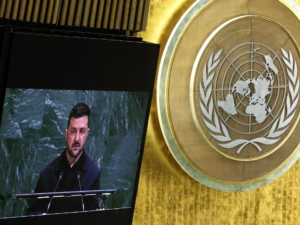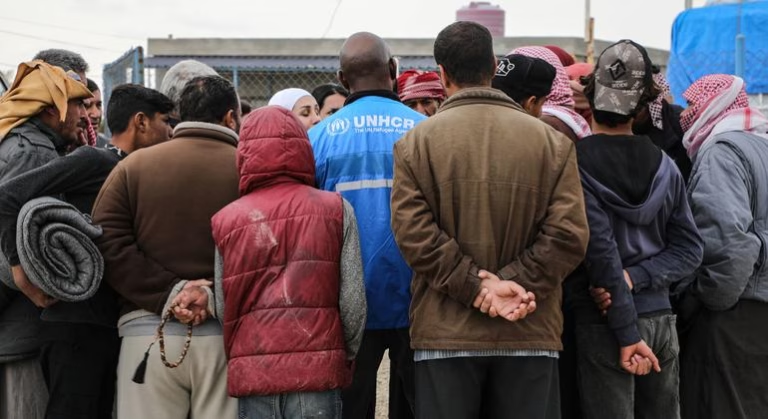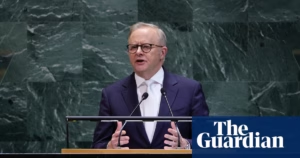“The issue is not whether AI will impact international peace and security, but how we will steer that influence.”
The UN Secretary-General outlined that, when used responsibly, AI can predict food shortages, assist mine-clearance efforts, and detect violence outbreaks before they escalate.
“However, without proper oversight, AI can be weaponized,” he warned, highlighting AI-assisted targeting in recent conflicts, cyberattacks on key infrastructure, and deepfakes that can intensify polarization or disrupt diplomacy.
“The capacity to create and manipulate audio and video endangers the integrity of information, exacerbates polarization, and might spark diplomatic disputes… humanity’s destiny cannot be left in the hands of an algorithm,” he emphasized.
Human Decisions Must Prevail
Mr. Guterres outlined four key priorities for governments: maintaining human control over the use of force, developing unified global regulatory frameworks, safeguarding information integrity, and bridging the “AI capacity gap” between developed and developing nations.
“I renew my demand for a ban on lethal autonomous weapons systems operating without human oversight, aiming to establish a legally binding instrument next year,” he stated.
He also stressed that decisions regarding nuclear weapons “must be made by humans – not machines.”
< p>The Secretary-General noted ongoing initiatives, including the establishment of an independent scientific panel on AI and a new global dialogue on AI governance, set to occur in New York on Thursday.
“These efforts aim to connect science, policy, and practice; ensure every country has a voice; and reduce fragmentation,” he said.
Expanding Access and Representation
Yejin Choi, Senior Fellow at Stanford University’s Institute for Human-Centered Artificial Intelligence, informed the Security Council that AI progress is currently concentrated among a few companies and nations.
“Let us broaden what artificial intelligence can achieve – and make sure everyone, everywhere, plays a role in developing it.”
AI Should Promote Inclusion
Ms. Choi called on governments and international bodies to invest in diverse ways to build AI, not just by scaling larger models, suggesting smaller, more adaptable systems could lower entry barriers.
Expand upon what intelligence can do and let all contribute to its development
– Professor Choi
She also advocated for greater representation in AI development, noting current AI models “perform poorly for many non-English languages and reflect limited cultural perspectives.”
Urgent Action Required
Secretary-General Guterres concluded by cautioning that the opportunity for effective regulation is swiftly disappearing.
“From nuclear disarmament to aviation safety, the global community has met the challenges of destabilizing technologies by setting standards, building institutions, and upholding human dignity,” he stated.
“The window is rapidly closing to shape AI for peace, justice, and humanity. We must act now.”

Lee Jae Myung, the President of the Republic of Korea, chaired the Security Council session.
The Security Council session was held during the ongoing General Assembly’s high-level week of its 80th session.
The meeting convened by the Republic of Korea (which held the Council presidency for September) included participation from heads of state and government, with President Lee Jae Myung of the Republic of Korea chairing the session.
Source: https://news.un.org/feed/view/en/story/2025/09/1165942






